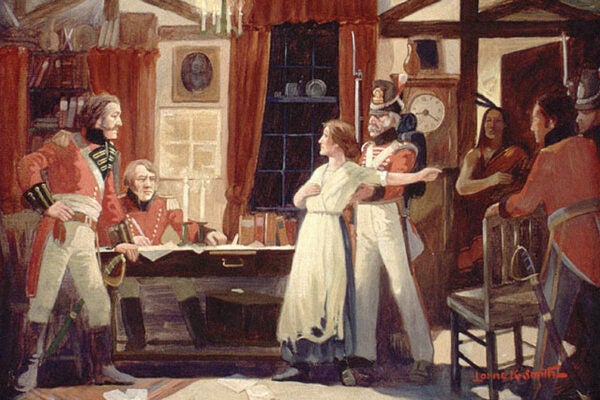“Alt-right” is a new political buzzword that refers to a segment of the reactionary/conservative spectrum with lots of internet-savvy, but what does the term actually mean? White nationalism, nativism, and racism are “alt-right” characteristics, as is an affiliation with Donald Trump’s presidential campaign, but its ideological core may be trickier to pin down.
The same can not be said for one of the “alt-right” antecedents, the isolationist Old Right of the 1930s-1950s. In the libertarian journal The Independent Review, Sheldon Richman offers a sympathetic history, detailing the development of the rise of the Old Right as a movement against Franklin Roosevelt and the New Deal. He calls it a coalition of politicians and publicists like H.L. Mencken “alarmed by the growth of bureaucratic power in the hands of the national government’s executive branch.”
Roosevelt is usually ranked among the top three presidents, but there was a strain of contemporary Roosevelt-hate that can be compared to Obama-hate in its virulence. This was minus the racial animosity aimed at Obama, unless one counts the bizarre anti-Semitic diatribes sometimes aimed at the patrician and Episcopalian FDR. (The notion that FDR was secretly Jewish can still be found in the bowels of the internet, where all conspiracy theories go to… live on.)
Richman traces the roots of the anti-statist, anti-collectivist segment of the Old Right to Thomas Jefferson’s vision of limited government. That perspective is certainly as old as America’s inheritance of English notions of liberty going back to Magna Carta. Additionally, the Old Right was strongly isolationist, believing that imperial expansion necessitated more centralized control, which would, they believed, lead to less freedom.
One can debate whether the U.S. was ever actually isolationist in the 20th century—whose beginning saw the U.S. fighting an insurgency in the Philippines—but in the 1930s there was a widespread feeling that the U.S. should not get involved in another European war. As Richman notes, even after Pearl Harbor, some Old Rightists remained opposed to the conflict. And as the Cold War began, some Old Rightists responded to Senator McCarthy’s falsehoods about dozens of communists in the State Department not by demanding to root out the Reds, but by saying the entire department should simply be shut down.
Sheldon does not touch on race, which is curious for someone who begins his history with the surprise some felt about the revelations of Mencken’s hatred of Roosevelt and “Roosevelt’s war” in Mencken’s diary. There’s no mention that those posthumously published diaries shocked others by revelations of his anti-black and anti-Semitic animus. Those diaries suggest there might be more to the Old Right than just ideological fealty to certain definitions of liberty.







